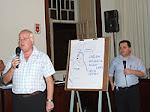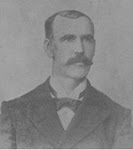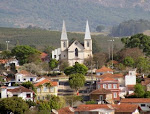That town was one important metropolis of Flanders, the country which occupied the west of Germany, northwestern France, Belgium and Holland. Because the commercial importance of that place, Brugges was a point where they were merchants worldwide. Thus, as Portugal is highlighted in maritime trade, the Portuguese there also marketed the products they brought their caravels, such as spices, timber and later, the sugar that would be produced on the island of Madeira, after Brazil. That was a point of trade and generation of wealth, and inevitably the Lem with their boats have become common visitors in Lisbon. With the Portuguese, our relatives have signed contracts, including a monopoly on the transport and marketing of “cortices”( product used in cap of wine bottles) from the portuguese lands. The first of these data Lem is still unclear, and will unlikely be clarified. Through several researchers have some information, but full of assumptions, based on calculations of time, estimate the lives and some records and citations on our most remote ancestors of the family. Pedro Taques of Ameida Leme, Luiz Gonzaga da Silva Leme, and others are devoted a lifetime to find those sources based on other studies such as Manoel Soeiro in their Anaes of Flandes. Later this matter back to the surface with Jose (Silva Lemes) Guimaraes, in research on its origins that with the help of Monsignor Jose Patrocinio Lefort, from Campanha, the first founded town in south of Minas Gerais State (Brazil), the mother of many others towns, Cambuquira, for exemple.
Today, many of the descendants of Lem, in Europe, America and elsewhere try to find out more details about the origin in remote times.
In Brazil, we are many descendants of the first Leme ( Portuguese form of the name Lem). In our country We have the Leme Blood from island of Madeira, where the first Lem arrived in XV Century.
Bruges (Brugge in Dutch; pop. 45,000, or 117,000 with the suburbs) is the capital of the province of Western Flanders and Belgium most touristic city, with 2 million annual visitors.This perfectly preserved (or actually restored) medieval town of little canals has been called the Venice of the North and certainly deserves this reputation.
History
Bruges was founded in the 9th century by a group of Vikings. The name 'Bruges' probably comes from the old-Norse word 'Bryggja', which means 'landing stage, or mooring place'. In the late 9th century, Baldwin the Iron Arm, first Count of Flanders, fortified the city, ironically against other raiding Vikings.
Bruges developed as a port, directly accesible from the sea until about 1050 AD. Then the natural waterways silted up, but Bruges remained connected to the sea via a the Zwin canal until the 15th century, although via outports like Damme and Sluis.
Bruges grew as one of the main textile manufacturing and trading centre in Europe, along with Ghent and Ypres.
In 1300, Flanders was annexed to France by King Philip IV the Fair. The king visited Bruges the next year, and his wife, Joanna of Navarre, was so impressed by the prosperity and opulent attires of the locals that she said "I thought I alone was queen, but I see that here I have 600 rivals".
See More informations:
http://www.eupedia.com/belgium/bruges.shtml








Um comentário:
fico feliz de saber mais sobre este meu antepassado maarten lem que é meu vigésimo avô paterno.
meu nome é sergio lamartine abreu, de lages/sc.
abraço.
Postar um comentário